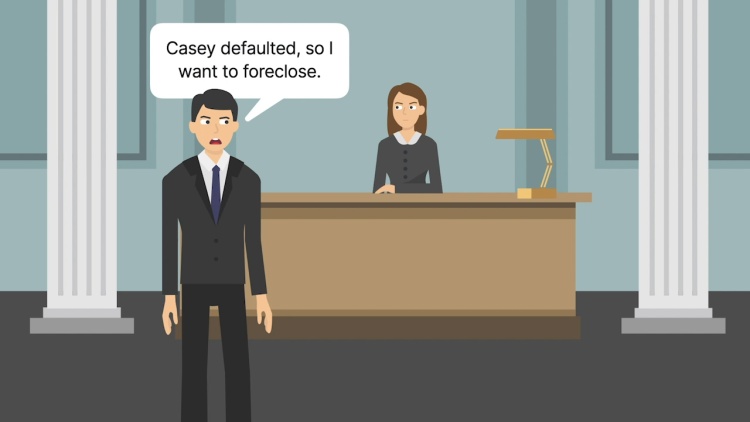Casey v. Chapman
Washington Court of Appeals
98 P.3d 1246 (2004)
- Written by DeAnna Swearingen, LLM
Facts
James Chapman (plaintiff), Daniel Casey (defendant) and others entered into a general partnership called South 320th Federal Way Partnership. In February 1993, Casey agreed to purchase Chapman’s “entire Partnership Interest.” The partners signed the contract. Casey signed a promissory note and a security agreement under which the partnership rights being sold were to be collateral for the debt. That agreement gave Chapmen the right to foreclose and sell the interest in case of default. In 1995, Casey defaulted. Chapman gave notice that Casey was in default and began the foreclosure process. Casey was granted a temporary restraining order and a permanent injunction to prevent the sale. Casey and Chapman settled. Under the settlement, the collateral would be sold at a Uniform Commercial Code (UCC) foreclosure sale on October 15, 1999 if Casey defaulted again. Casey did not make payment, and Chapman sold the partnership interest to Bruno Investments, LLC. Chapman moved for a declaratory judgment that the sale was valid and Bruno Investments, LLC was entitled to “all voting rights, equity interests and economic interests” of the partnership interest. The trial court entered the declaratory judgment, and Casey appealed to the Washington Court of Appeals.
Rule of Law
Issue
Holding and Reasoning (Cox, J.)
What to do next…
Here's why 899,000 law students have relied on our case briefs:
- Written by law professors and practitioners, not other law students. 47,000 briefs, keyed to 994 casebooks. Top-notch customer support.
- The right amount of information, includes the facts, issues, rule of law, holding and reasoning, and any concurrences and dissents.
- Access in your classes, works on your mobile and tablet. Massive library of related video lessons and high quality multiple-choice questions.
- Easy to use, uniform format for every case brief. Written in plain English, not in legalese. Our briefs summarize and simplify; they don’t just repeat the court’s language.





